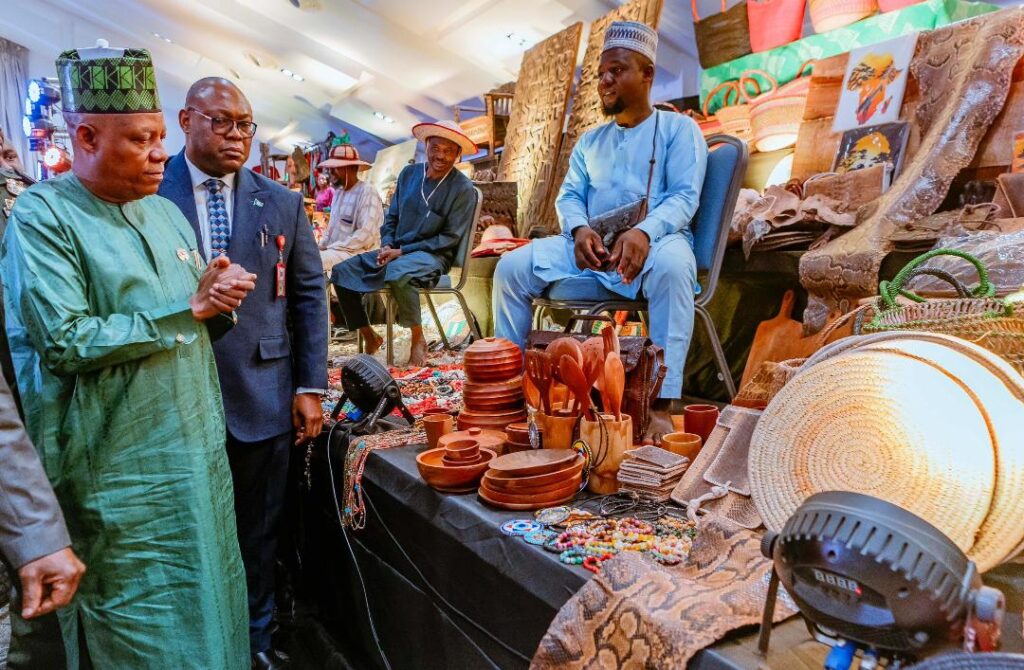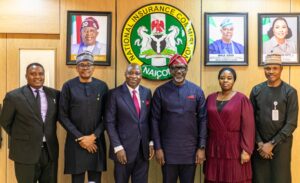Tinubu urges African nations to embrace Eco-friendly tourism to boost investments

Abdullateef Fowewe
President Bola Tinubu has called on African countries to adopt policies promoting Eco-friendly tourism and the preservation of cultural heritage to boost the continent’s economy and achieve Sustainable Development Goals (SDGs), divulged a remark obtained on Wednesday from the Senior Special Assistant to The President on Media & Communications (Office of The Vice President), Stanley Nkwocha.
Speaking at the 68th UN Tourism Commission for Africa meeting in Abuja, Tinubu underscored the need for practical solutions and alliances to enhance investment in tourism infrastructure and position Africa at the center of global tourism discourse.
Represented by Vice President Kashim Shettima, the President declared Nigeria’s support for sustainable tourism practices tailored to Africa’s unique challenges, aiming to harness tourism’s full potential for economic growth across the continent
He said, “By collaborating with regional bodies, such as the African Union, ECOWAS and UN Tourism, Nigeria encourages other African nations to adopt policies promoting eco-friendly tourism and preserving cultural heritage.
“This collaboration includes sharing best practices, tourism training, developing joint marketing campaigns for sustainable tourism and improving infrastructure to support intra-African travel. Through these regional initiatives, Africa can foster a continent-wide movement toward tourism that benefits both the people and the environment, driving long-term prosperity for Africa.”
The Nigerian leader observed that tourism goes beyond “travelling or visiting historic sites, waterfalls, mountains, and parks,” just as he maintained that the sector “is an engine of local economies, a catalyst for social understanding, and a bridge that unites cultures.
“The advent of technology and creativity has transformed tourism and its opportunities. Therefore, it is appropriate that this conference highlight the impact of AI, Innovation, and Creative Industries on the tourism sector,” he added.
Bringing out the role of Nigeria’s creative industries in global tourism, which encompass music, film, fashion, literature and digital arts, Tinubu said the sector has “emerged as a powerful driver of economic growth, making significant contributions to the country’s GDP, job creation and economic diversification.
“Nigeria’s Nollywood is one of the largest film industries in the world, generating substantial revenue from domestic and international markets. Similarly, the music and fashion industries have propelled Nigeria’s global cultural influence and generated income and employment opportunities.
“As we chart a new course for tourism in Africa, one thing is clear: the government cannot build the sector alone. It needs a partnership with the private sector. The sector’s growing complexity and opportunities demand this strategic partnership.”
While declaring the regional meeting open, the Nigerian leader implored participants “to focus on practical solutions and collaborative strategies that will strengthen intra-African travel, boost investment in tourism infrastructure, empower local communities, and deepen tourism’s role in achieving the Sustainable Development Goals (SDGs) and making African tourism the heart of the global conversation.”
Earlier, Minister of Art, Culture, Tourism, and Creative Economy Barrister Hannatu Musa Musawa, in her speech, urged African nations to leverage innovation, artificial intelligence (AI), and creative industries to unlock the continent’s vast potential in global tourism.
Expressing her deep conviction in President Tinubu’s vision for Nigeria, Musawa stated, “I am passionate about Nigeria and the mission and commitment of President Tinubu. I believe in it because of his vision for Nigeria, which I believe will enable the country to take a seat in the comity of global nations as a developed nation. I pray the same for every African nation, and urge us all to rise together.”
The Minister noted that Tinubu’s “Renewed Hope Agenda” is the guiding principle for Nigeria’s sectoral transformation, emphasising that “Africa stands at the forefront of change.
The 21st century demands that we build economies not just from the ground but on people-powered prosperity, through tourism, culture, the creative economy and the arts.”
Musawa said the event’s theme, “Boosting Social Impact and Education in Tourism via Innovation, AI, and Creative Industries in Africa,” highlights that the future of Africa’s prosperity depends on how boldly and broadly it uses technology to empower people.
She pointed out that while the global industry is valued at over $11 trillion, Africa accounts for less than 5% of global tourism revenue and under 1% of global creative exports. “This is not a deficit or talent scarcity. Today, Nigeria invites Africa to close that gap,” she said.
On his part, the Secretary-General of UN Tourism, Amb. Zurab Pololikashvi commended the Tinubu administration for supporting the transformation of the tourism industry in Nigeria, which, according to him, will impact the rest of Africa.
Underscoring tourism as the future of Africa, he said the continent is indeed the new frontier in world tourism, given its huge potential and limitless opportunities for innovation and creativity.
Amb. Pololikashvi urged leaders on the continent to address issues related to connectivity across the region by reviewing existing visa regimes in a bid to ease the movement of tourists across Africa and beyond.
On her part, the Senator representing the FCT at the National Assembly, Sen. Ireti Kingibe, encouraged stakeholders across Africa to think boldly, as Africa is not just participating in the digital future of tourism.
She said Africa is shaping the digital future of tourism and Nigeria, with immense creativity and cultural wealth, stands ready to lead, adding that the culture and resilience of Africans, when combined with emerging technology such as AI and immersive media, can redefine Africa, especially how it is experienced, studied and valued.
“Today’s gathering is an opportunity to amplify the stories of home-grown innovations that attract tourists from the grassroots to the global stage. Let us use this space to exchange best practices, build cross-border collaborations and generate actionable strategies that place communities, especially women and youths, at the heart of our development agenda,” she added.




